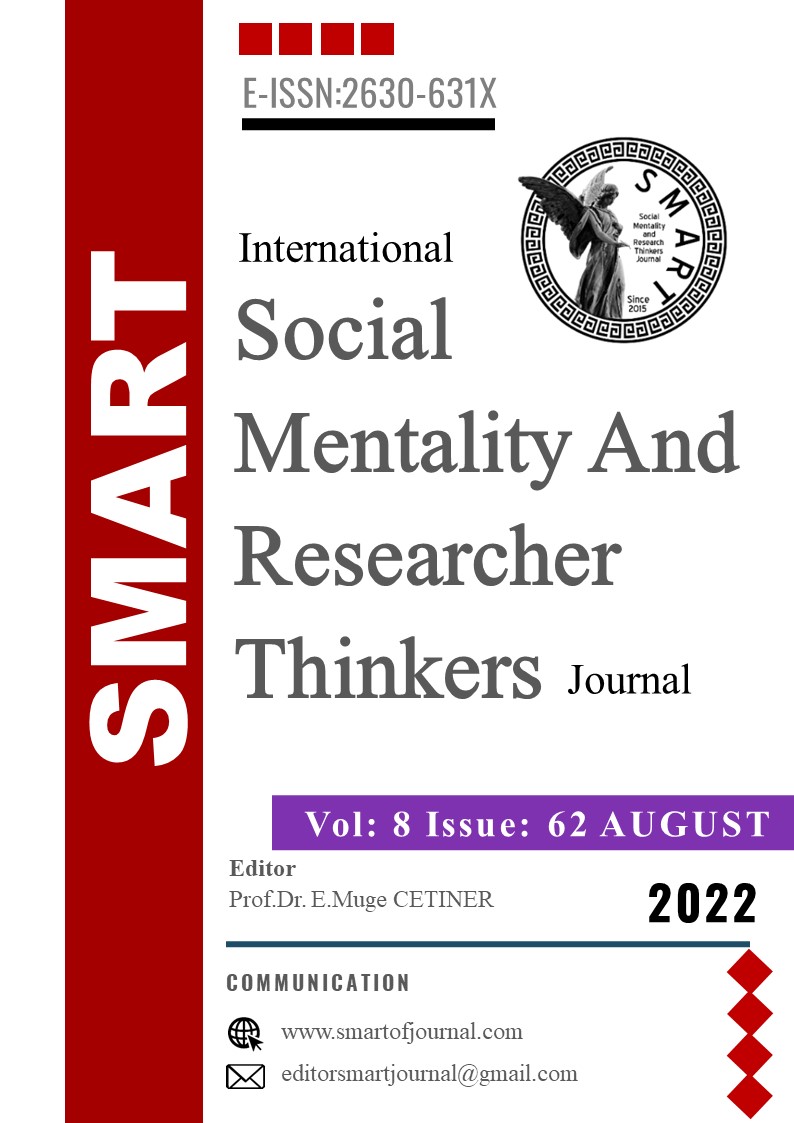Author :
Abstract
İnsanın en temel motivasyonu refah ve mutluluk içinde bir yaşam sürmektir. En kapsamlı görüşlere göre refahın kaynağı “paradır”. Adam Smith (1776), ‘insanların “mevcut durumlarını iyileştirmek için” tek yol fiziksel refah değildir’ derken “Sosyal Onay” kavramına dikkat çekmektedir. Fiziksel refahın temel unsuru bireyin elde ettiği kazanç yani para iken “sosyal onay” insan yaşamında paradan daha farklı kavramların göstergesidir. Ancak günümüzde sosyal onayın en temel göstergesi insanın paraya yüklediği anlam ile açıklanabilmektedir. Paranın icadı ile birlikte paraya yüklenen roller her geçen gün değişmekte çoğalmakta ve başka şekillere bürünmektedir. Morgan Ricks’e (2016) göre para sadece cebimizdeki nakit ya da çek defterimizdeki bakiye değildir. O aynı zamanda ‘sosyal istikrar politika amaçları’ için elzem bir araçtır. Bu kısa ama kapsamlı tanım ile paranın sadece bireysel bir refah aracı olmadığı bilakis önemli bir sosyal rolünün olduğu vurgulanmaktadır.
Bu çalışmada finansal istikrarın hammaddesi olan para kavramı Goethe’nin başyapıtı olan Faust’un ikinci bölümünde geçen diyaloglar ve son zamanlarda her kesimden izleyicinin aşina olduğu “La Casa De Papel” dizisi bağlamında incelenmiştir. Sonuç olarak iktisat biliminin temel tanımında yer alan “sınırsız insan ihtiyaçlarını” karşılamanın en önemli rolü paraya düşmektedir. Özellikle küreselleşme ile her ne kadar “fiziki para” önemini kaybetmiş gibi görünse de dijital para ve benzerlerinin temelini oluşturduğundan vazgeçilemez bir kavram olduğu sonucuna ulaşılmıştır.
Keywords
Abstract
The most basic motivation of man is to lead a life in prosperity and happiness. According to the most comprehensive views, the source of wealth is “money”. Adam Smith (1776) draws attention to the concept of “Social Consent” when he says that “physical well-being is not the only way for people to “improve their present condition. While the basic element of physical well-being is the earnings of the individual, namely money, “social approval” is an indicator of different concepts in human life than money. However, today, the most basic indicator of social approval can be explained by the meaning that people attribute to money. With the invention of money, the roles attributed to money are changing day by day, increasing and taking on other forms. According to Morgan Ricks (2016), money is not just the cash in our pocket or the balance in our checkbook. It is also an essential tool for 'social stability policy purposes'. With this short but comprehensive definition, it is emphasized that money is not only a means of individual welfare, but has an important social role.
In this study, the concept of money, which is the raw material of financial stability, is examined in the context of the dialogues in the second part of Goethe's masterpiece Faust and the "La Casa De Papel" series, which is familiar to viewers from all walks of life. As a result, the most important role of meeting the "unlimited human needs" in the basic definition of economics falls on money. Although "physical money" seems to have lost its importance, especially with globalization, it has been concluded that it is an indispensable concept as it forms the basis of digital money and the like.
Keywords
- 1. Anık M., (2020), Modern Bireyin Bencilliği Ve Açgözlülüğü: Faust Ekseninde Bir Edebiyat Sosyolojisi Analizi, Dokuz Eylül Üniversitesi Sosyal Bilimler Enstitüsü Dergisi, 22 (4):1479-1499
- 2. Binswanger H. C. (1994), Money and Magic: A Critique of the Modern Economy in the Light of Goethe's Faust ,University of Chicago Press, Chicago
- 3. Binswanger H.C. (1998), The Challenge of Faust, Sience, 281(5377): 640-641
- 4. Chown J, (2005), A Hıstory Of Money From AD 800, Taylor & Francis, New York
- 5. Daly H. (1995), Money and magic (A critique of the modern economy in the light of Goethe's Faust): Hans Christoph Binswanger. University of Chicago Press, Chicago, IL, 1994. Translated by J.E. Harrison, postscript by Iring Fetscher, Ecological Economics, 12 (3)-257-258
- 6. ECB Financial Stability Review, (2012), www.ecb.europa.eu, e.t.: 07.05.2022
- 7. Eğilmez, M, (2020) Para Basmanın Sonuçları, www.mahfiegilmez.com, e.t.:07.05.2022
- 8. Elsayed A.H., Naifar N., Nasreen S., (2022), Financial stability and monetary policy reaction: Evidence from the GCC countries, The Quarterly Review of Economics and Finance, https://doi.org/10.1016/j.qref.2022.03.003
- 9. Goethe von J. W. (2005), Faust, Çev: Zeynep Kazan, Bahar Yayınevi, İstanbul
- 10. Gopinath, G. (2020). The great lockdown: Worst economic downturn since the great depression, IMF Blog
- 11. Mishkin F.S., (2004), The Economics of Money, Banking, and Financial Markets, The Addison-Wesley series in economics, 7. Edition
- 12. Oxford Languages, https://languages.oup.com/google-dictionary-tr/, e.t.: 22.04.2022
- 13. Özel M., (2020), Roman Diliyle İktisat, Küre Yayınları, İstanbul
- 14. Ricks M, (2016), The Money Problem Rethinking Financial Regulation, The University of Chicago Press, Chicago/ London
- 15. Salihoğlu, E., (2020), Dijital Para ve Merkez Bankası Politikaları, Nobel Akademik Yayıncılık, 1. Basım, İstanbul
- 16. Savaş V.F. (1998), İktisatın Tarihi, Avcıol Basım- Yayın, 2. Baskı, İstanbul
- 18. What Europe's banks did with the ECB's trillion euros, www.dw.com/en/what-europes-banks-did-with- the-ecbs-trillion-euros/a-17848344, e.t.: 07.05.2022





